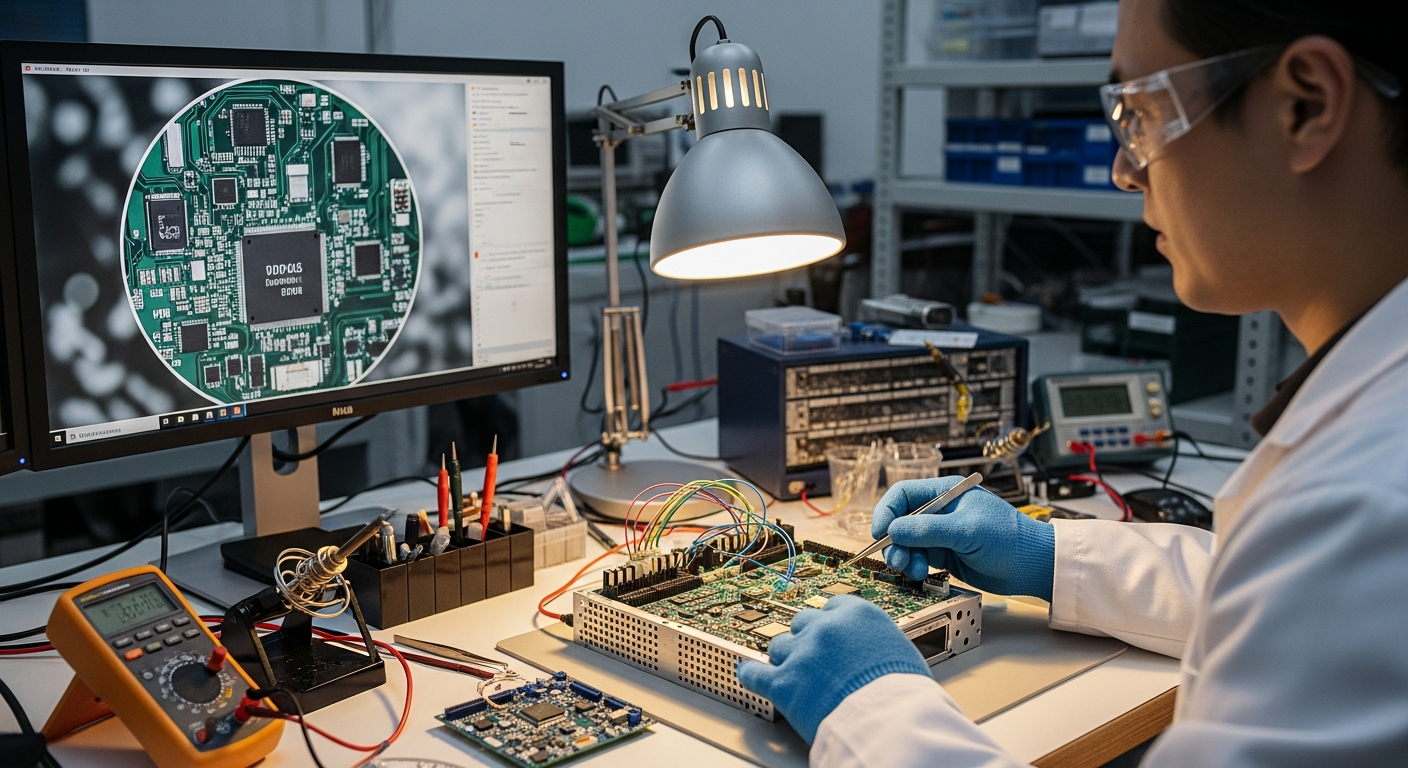Decoding the Enigma of Cognitive Manufacturing
In today's rapidly evolving industrial landscape, a revolutionary concept is reshaping the way we approach production: cognitive manufacturing. This cutting-edge paradigm leverages advanced technologies to create intelligent, self-learning systems that optimize operations, predict maintenance needs, and adapt to changing conditions in real-time. As industries grapple with increasing complexity and market volatility, cognitive manufacturing emerges as a beacon of innovation, promising enhanced efficiency, reduced downtime, and unprecedented levels of customization.

The concept draws inspiration from cognitive computing, which aims to mimic human thought processes in computer models. By applying these principles to manufacturing, cognitive systems can analyze vast amounts of data, identify patterns, and make decisions with minimal human intervention. This marks a significant departure from traditional automation, where machines follow pre-programmed instructions without the ability to learn or adapt.
Core Components of Cognitive Manufacturing
At the heart of cognitive manufacturing lie several key technologies that work in concert to create intelligent production environments:
-
Sensor Networks: Advanced sensors collect real-time data on machine performance, environmental conditions, and product quality.
-
Big Data Analytics: Sophisticated algorithms process and analyze massive datasets to extract actionable insights.
-
Machine Learning: AI systems continuously learn from new data, improving their decision-making capabilities over time.
-
Digital Twins: Virtual replicas of physical assets enable simulation and optimization of processes before implementation.
-
Edge Computing: Distributed computing architecture allows for faster processing of data closer to its source.
These components form the foundation of a cognitive manufacturing system, enabling factories to operate with unprecedented levels of intelligence and autonomy.
Transforming Production Dynamics
Cognitive manufacturing is revolutionizing production dynamics across various industries. In automotive manufacturing, for instance, cognitive systems can predict equipment failures before they occur, significantly reducing downtime and maintenance costs. The aerospace sector leverages cognitive technologies to optimize complex supply chains, ensuring just-in-time delivery of critical components.
One of the most significant impacts of cognitive manufacturing is its ability to enable mass customization. By rapidly adapting production lines to accommodate individual customer preferences, manufacturers can offer personalized products at scale without sacrificing efficiency. This level of flexibility was previously unattainable with traditional manufacturing methods.
Challenges in Implementation
Despite its transformative potential, the adoption of cognitive manufacturing faces several challenges. One of the primary hurdles is the substantial initial investment required for implementation. Upgrading legacy systems, installing sensor networks, and developing AI capabilities can be cost-prohibitive for many organizations, particularly small and medium-sized enterprises.
Data security and privacy concerns also pose significant challenges. As manufacturing systems become more connected and data-driven, they become increasingly vulnerable to cyber threats. Ensuring the integrity and confidentiality of sensitive production data is paramount for maintaining competitive advantage and regulatory compliance.
Moreover, the shortage of skilled personnel capable of designing, implementing, and maintaining cognitive manufacturing systems presents a significant obstacle. As the technology evolves rapidly, there is a growing need for continuous workforce upskilling and reskilling to bridge the talent gap.
The Future Landscape of Cognitive Manufacturing
As cognitive manufacturing continues to mature, its impact on the industrial sector is expected to grow exponentially. Industry experts predict that by 2025, over 60% of global manufacturers will use AI-powered cognitive capabilities to improve productivity and quality. This shift will likely lead to the emergence of new business models, such as Manufacturing-as-a-Service (MaaS), where cognitive systems enable highly flexible and on-demand production capabilities.
The integration of cognitive manufacturing with other emerging technologies, such as 5G networks and quantum computing, holds the promise of even greater advancements. These synergies could unlock new levels of speed, accuracy, and complexity in manufacturing processes, pushing the boundaries of what’s possible in production.
Furthermore, cognitive manufacturing is poised to play a crucial role in addressing global challenges such as sustainability and resource efficiency. By optimizing energy consumption, reducing waste, and enabling circular economy practices, cognitive systems can help industries minimize their environmental footprint while maximizing productivity.
Navigating the Cognitive Manufacturing Landscape: Key Considerations
• Conduct a thorough assessment of your current manufacturing processes to identify areas that could benefit most from cognitive technologies.
• Start with pilot projects to demonstrate value and gain organizational buy-in before scaling up implementation.
• Prioritize data quality and governance to ensure the accuracy and reliability of insights generated by cognitive systems.
• Invest in workforce development programs to build the necessary skills for managing and maintaining cognitive manufacturing technologies.
• Collaborate with technology partners and industry peers to share best practices and accelerate innovation in cognitive manufacturing.
In conclusion, cognitive manufacturing represents a paradigm shift in industrial operations, offering unprecedented levels of efficiency, flexibility, and intelligence. As organizations navigate the complexities of implementation, those who successfully harness the power of cognitive technologies will be well-positioned to lead in the new era of smart manufacturing. The journey towards cognitive manufacturing may be challenging, but the potential rewards in terms of competitive advantage and operational excellence make it an imperative for forward-thinking industries.






